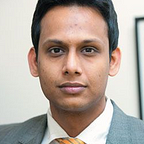Delhi High Court’s judgement setting aside the gag order in the Delhi Gangrape Case
This blog post analyses the judgment lifting the blanket gag order on reporting court proceedings in the trial of the Delhi Gangrape accused.
Background
After lifting lifting the Gag Order on the press in the Chautala Case (subsequently stayed by the Supreme Court), the Delhi High Court has lifted the Gag Order on reporting the Delhi Gang Rape Case. This is as per a judgment dated 22.03.2013 given by Justice Rajiv Shakdhar in Vijay Singhal v. Govt. of NCT [WP(C) 195/2013].
The Delhi High Court Judgment dated 22.03.2013 set aside a police “advisory” dated 05.01.2013, as well as a lower court Order dated 22.01.2013 by which the Media was prevented from reporting on the court proceedings in the Delhi Gangrape Case.
Establishing Public Interest
The first few pages describe the debate which was spurred by the Delhi Gangrape. In many legal cases, such a background is given in a perfunctory manner. However, the background provided to the Delhi Gangrape Incident provides foundational support to the analysis which stretches till the last paragraph of the Judgment.
This is because the Court correctly reasons, for any reporting in such a criminal matter there should be an existent public interest and not a mere morbid curiosity. This factual narration contains a summary of the brutal incident as well as the public debate spurred by it. Protests and the legal measures proposed. In view of this, the court neatly concludes the overwhelming public interest which is present in the case.
Reasoning of the Court
There are three principal prongs which are examined and reasoned by the court.
The court first examines the legality of the police advisory, holding it to be illegal. This is due to the power which is present under the criminal law allowing for gag orders to be made only by Courts and not the police. Hence, any such police advisory which is issued without legislative backing is void ab initio.
The power to limit the constitutional guarantee to free speech can only be prohibited by a valid law passed by the legislature. Hence such extra legal “advisories”, which are not made pursuant to any legislative provisions but purely by the private fiat of the police are illegal and unenforceable.
Secondly the Court holds that discretion vests in a court in barring or permitting an open trial and publication in all cases under Section 327. The general rule under Section 327 being that an open trial will be held in all cases, with the judge having the discretion to restrict access and hold it in camera after recording reasons for it. However Section 327(2) inverts this rule, when the trial involves an offense of rape. It states that trials concerning rape shall be held in camera. Similarly Section 327(3) prohibits publication of court proceedings.
The Delhi High Court holds that even in the existence of such statutory bars, the Judge has discretion to permit limited access to the trial, and even publication. In reaching this conclusion, it interprets the words, “shall” as “may”, stating that the Court in ordering can always exercising its discretion record reasons for departing with the general rules. Following from this it sets aside the lower court order dated 22.01.2013.
Thirdly since the prosecutrix (consciously avoiding using the term “victim”) has passed away, much of the interest in holding the trial in camera as well as preventing reporting under Secs. 327(2) and 327(3) is eroded. These provisions are to ensure the safety and dignity of the prosecutrix in which she can freely depose and give testimony. Due to her death blanket gag orders under these provisions are naturally suspect.
Another reason which is canvassed by the prosecution is the safety of the accused where a free flow of people may pose a risk to them. The Court here takes a balancing approach stating that a blanket ban as opposed to limited access, is excessive. It states that the lower court can always restrict access, reasonably.
Holding
Based on the above-mentioned reasoning the Delhi High Court finally orders that:
(i) The Court will allow access to one representative journalist of each of the accredited National dailies.
(ii) The reporting shall not include the name of the victim or those of the members of the family of the victim or the complainant or witnesses cited in the proceedings.
(iii) The reportage shall exclude that part of the proceedings, which the Court specifically so directs.
(iv) The reporters of UNI and PTI and other national dailies shall share their stories with representatives of other newspapers and members of the electronic media.
Parting Thoughts
The tests of “necessity” and “proportionality” which were alluded to in Sahara Real Estate v. SEBI (read more here) were not applied. The Court does state the need to apply them whenever press freedoms are involved however does not flesh them out. Personally, I was somewhat disappointed given that this was an opportunity for the court to provide some guidance on them.
